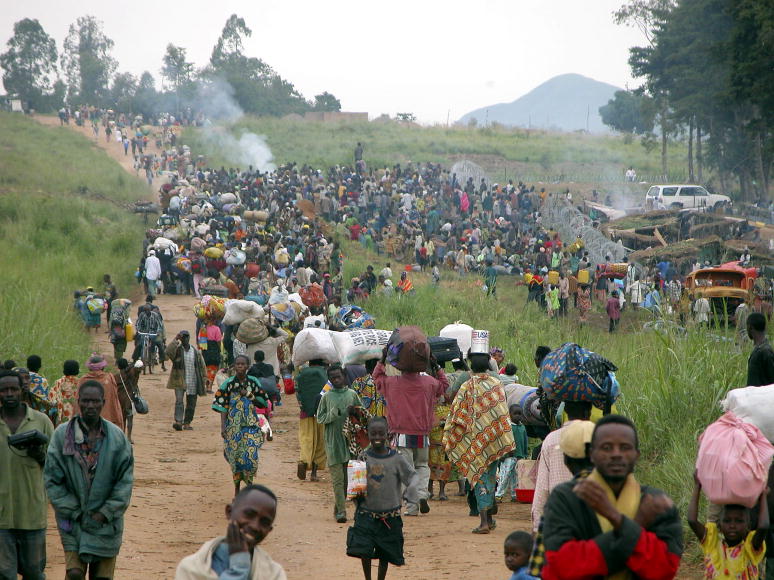
Image: Civilians fleeing the ongoing violence in Bunia.15/05/2004. Burgenstock, Democratic Republic of the Congo. UN Photo/A Burridge.
In a press briefing at the Palais des Nations in Geneva UNHCR spokesperson, Matthew Saltmarsh, reported that between 10,000 - 15,000 people have fled escalating violence in the Democratic Republic of Congo (DRC) and crossed into Burundi.
Conditions in eastern DRC have continued to deteriorate as Rwandan-backed M23 took control of one of the regions largest cities, Bukavu, on 16 February.
Most of those arriving in Burundi are Congolese from the Bukavu area in the South Kivu province. Amongst the arrivals are a smaller number of Burundian nationals who have returned to their country.
Saltmarsh added that people are mainly arriving at the Gatumba border post close to the largest city, Bujumbura. There have also been reports of thousands arriving through unofficial border points including along the Rusizi River near Rugombo.
Communities near the border have been described as extremely dire, with a lack of shelter, water and sanitation facilities. An additional 10,400 people are sheltering in schools and a local stadium on the DRC side waiting to be relocated to safer settlements further inland.
The UNHCR reported that escalating violence has resulted in grave human rights violations such as summary executions, including of children, and conflict-related sexual and gender-based violence.
Read the full UNHCR press briefing here.
